1, January 2022
France takes over EU presidency as national election looms 0
France takes over the rotating presidency of the European Union on Saturday, affording President Emmanuel Macron the chance to pose as the EU’s de facto leader in the run-up to national elections in April.
The 44-year-old has never made any secret of his ambitions to be the motor for further European integration, serving over the last four years as a dynamic sidekick to the more steady German chancellor Angela Merkel in Europe’s power couple.
With Merkel now retired and the timely gift of the rotating presidency of the EU Council from January 1, Macron has announced an ambitious agenda for the 27-member bloc that could also serve his domestic campaign for re-election.
“The year 2022 must be a turning point for Europe,” he said in a New Year’s Eve national address that hailed the EU’s role during the Covid-19 crisis.
Referring to the French presidency, he vowed that “you can count on my complete commitment to ensure that this period, which comes around every 13 years, is a time of progress for you”.
The centrist, who made his Europhile views a key part of his political campaign when winning the presidency in 2017, is hoping it will again serve him in elections scheduled for April 10 and 24.
“The EU presidency gives him a welcome platform to put his European record to the forefront and differentiate himself from his rivals and bring new proposals, new ideas to the table,” said Claire Demesmay, an expert at the Marc-Bloch think-tank in Berlin.
Strutting on the international stage has also long been a popular move for any French president.
“The French like nothing more than the image or impression of France being ‘at the controls’,” said Pierre Sellal, a former French diplomat at the French mission to the European Union.
To mark the start of the six-month presidency, France illuminated historic buildings across the country including the Eiffel Tower and the Arc de Triomphe in the blue of the EU flag on New Year’s Eve.
Other observers have noted that the French logo for the presidency includes the letters U and E for “Union Europeene” with a grey arrow in the middle that appears to create another letter — a sideways M for Macron.
German support?
Each European country gets a chance at holding the rotating presidency of the Council, which gives the member state an opportunity to set the official agenda for fellow leaders in the bloc — within limits — and organise meetings of ministers.
But although the first French presidency since 2008 offers opportunities for Macron, it is also seen by observers as holding risks.
His agenda to make Europe “powerful” — in defence, technology or its own border security — risks being overshadowed in the short term by the accelerating Covid-19 health crisis.
Sebastien Maillard, director of the Jacques Delors Institute, a pro-EU think-tank based in Paris, says Macron will also face pressure to deliver after having ramped up expectations.
“He can’t get to the first round (of the presidential election) on April 10 without having obtained some results from the European presidency,” Maillard said. “That’s the challenge for him, but it can also be a real opportunity.”
European leaders are set to meet in Paris on March 10-11, which could be a chance for them to agree on a major reform of the bloc’s budget rules.
Much will depend on Germany’s new chancellor Olaf Scholz, whose coalition government is seen as sceptical on budget reforms, but supportive of Macron’s agenda.
France’s presidency is “an important opportunity we want to seize together to strengthen Europe and make it fit to rise up to tomorrow’s challenges,” German Foreign Minister Annalena Baerbock told AFP on Friday.
Other European leaders such as Hungary’s right-wing Prime Minister Viktor Orban, whom Macron labelled a “political opponent” in December, might be in no mood to bolster the French leader’s chances of re-election.
Domestic concerns
As symbolic head of the European Council, Macron will have to walk a fine line as he also launches his campaign for re-election, which is expected to be announced formally in February at the latest.
Sellal, the former French diplomat, said France’s partners would take a dim view of “attempts to instrumentalise the presidency for electoral reasons”.
Domestically, opponents have already accused Macron of electioneering and say he should have delayed France’s turn at the helm until after the elections.
“It’s a mistake. He’s doing it for his own interests, not those of France,” his rightwing rival Valerie Pecresse from the Republicans party said last month.
Eurosceptic opponents such as far-right figures Marine Le Pen and Eric Zemmour will also waste no opportunity to portray the whole exercise as meaningless.
“It’s been four-and-a-half years that he’s been in power and he’s obtained nothing and done nothing in the European domain, apart from achieving a sort of submission to Germany in the name of the Franco-German couple,” Le Pen told RMC radio in mid-December.
Source: AFP
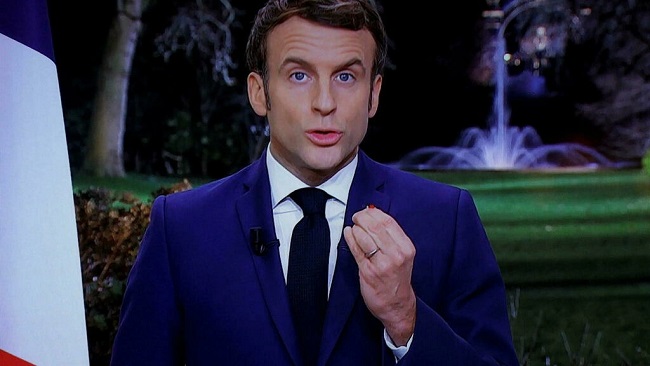


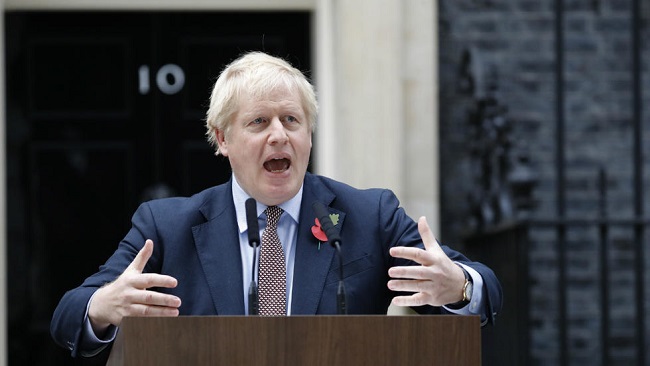
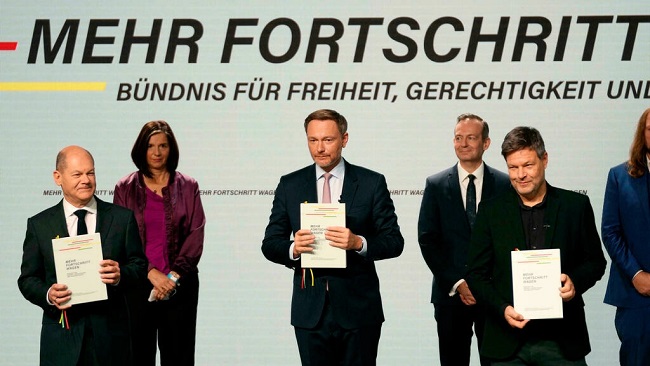
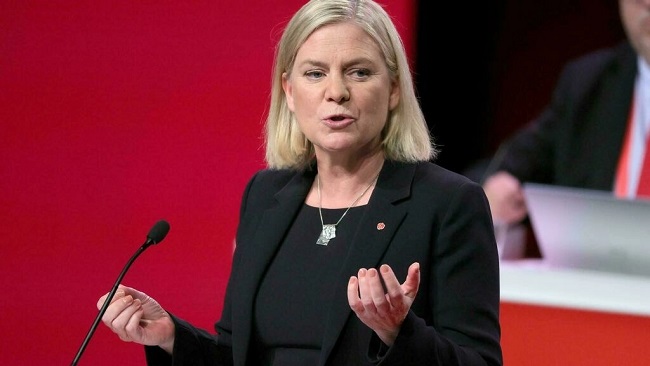
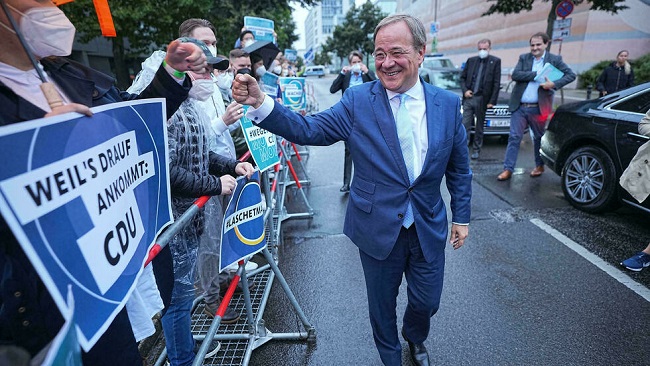



















11, January 2022
Who will be France’s next head of state? 0
In a presidential campaign dominated by a revanchist and nativistic far right, Christiane Taubira’s presumptive run for the Elysée Palace has more than a soupçon of poetic license, of quiet rage against the dying of the left. It may also be the last chance for her moribund camp to find a voice in an election it appears doomed to lose.
A former justice minister and icon of the French left, Taubira took another step towards a widely whispered-about presidential run on Sunday, saying she would submit to a citizen’s primary vote later this month, which she is tipped to win. The move all but confirms her second presidential run, 20 years after she became the first Black woman to seek France’s highest office.
News of Taubira’s candidacy has sent ripples of excitement among France’s increasingly despondent left-wing voters, of the kind only Jean-Luc Mélenchon, the leftist firebrand, can rival. However, it also adds one more name to an already cluttered field of candidates fighting over a diminishing pool of votes, prompting many analysts to question the pertinence of her belated Elysée run.
“If she somehow manages to unite the reformist left behind her, then her candidacy could be a game-changer,” said political analyst Thomas Guénolé, though quickly cautioning: “Without unity, however, she will become just one more element in a ‘Balkanised’ (and hopeless) left.”
Talk of the left’s chronic divisions is a sensitive issue for Taubira, a maverick who has long shouldered the blame for the far right’s shocking breakthrough in the first round of the 2002 presidential election. Running as a left-wing radical at the time, Taubira picked up just 2.3% of the vote – a relatively small tally but enough to keep the Socialist favorite, Lionel Jospin, out of the run-off.
“She was made a scapegoat for Jospin’s defeat, unfairly so,” said Guénolé, noting that others on the left had siphoned away more votes from the Socialist candidate.
Twenty years on, the once mighty Socialist Party has shrunk to a minor player in France’s political landscape, leaving the left as a whole rudderless and divided. Between them, the seven left-wing candidates currently in the race for the Elysée Palace account for just over a quarter of the electorate, according to polls. Only one – the far left’s Mélenchon – has touched double digits so far, but even he remains far off the 17% to 20% threshold deemed necessary to reach the crucial second round of voting.
Both Mélenchon and Yannick Jadot, the Green candidate, have repeatedly rejected the idea of a citizen’s primary, leaving only a motley group of struggling candidates – including the Socialist Party’s mayor of Paris Anne Hidalgo – among Taubira’s potential challengers. According to her supporters, Taubira, a prolific writer and passionate orator whose words have even been put into song, is the only one with the potential to energise voters.
Rebel at heart
A staunch feminist and a champion of minorities, Taubira, 69, is best known for shepherding a same-sex marriage bill into French law in 2013 when she served as justice minister in François Hollande’s Socialist government. She did so while facing an angry backlash from the conservative and far-right opposition, and with only lukewarm support from her cabinet colleagues.
“Opening marriage and adoption to same-sex couples is an act of liberty, of equality and of fraternity,” she told lawmakers in one of several fiery debates in parliament, echoing France’s Republican motto. She met the opposition’s insults with lyrical flourishes and witty put-downs, remaining calm and composed even when anti-gay-marriage protesters levelled racised slurs at her.
“Taubira is a symbol of anti-racism by virtue of who she is, what she achieved, and the vile, racist abuse she endured,” said Guénolé. “The battle over same-sex marriage also made her an icon of equality.”
Taubira had already made her mark as a champion of progressives more than a decade earlier, authoring landmark legislation in 2001 that recognised slavery as a crime against humanity. It was a personal triumph for the then little-known MP from faraway Guiana, a former French colony in South America, where convicts from metropolitan France were banished up until 1953, a year after her birth.
One of 11 siblings, Taubira was raised in Guiana’s capital Cayenne by her single mother, a nursing assistant who died at age 49. As she quipped in a 2012 memoir, she was born a “[w]oman, Black, poor, what fabulous capital! Every challenge to take up, the promise of a life of exhaustion. But life is more seditious than one thinks.”
A seditious, rebellious streak would run throughout her political career, which began in the ranks of a Guianese pro-independence faction alongside her second husband Robert Delannon, who was jailed in the late 1970s for planning to blow up an oil and gas facility. Taubira soon abandoned the separatist cause and shifted towards more moderate politics, though she never lost her independent spirit.
“Sometimes to resist is to stay, sometimes to resist is to leave,” she tweeted decades later, in January 2016, as she quit the justice ministry in protest at controversial plans to strip French-born dual nationals of their citizenship when convicted of terrorism.
Prior to her departure, Taubira had championed a divisive overhaul of prison sentencing, seeking to institute probation in place of jail terms for petty crimes in an effort to reduce overcrowding in France’s penitentiaries. But her efforts met with resistance from cabinet colleagues and eventually jarred with the mood of a nation deeply shaken by a string of jihadist terrorist attacks.
Battle of ideas
Taubira’s perceived softness as justice minister gave France’s right wing a key line of attack. So did her stances on racism and the legacy of slavery, issues some candidates in the upcoming presidential elections are keen to brush under the rug. While France’s reckoning with its colonial past is still in its infancy, for the likes of far-right pundit and presidential candidate Eric Zemmour, “repentance” has already gone too far.
An advocate of the “Great Replacement” theory, according to which elites are plotting to replace French nationals of white stock with immigrants, Zemmour has dominated the early stages of the campaign in the raucous, aggressive and iconoclastic manner of a Donald Trump – albeit with the veneer of cultured sophistication generally expected of a French presidential candidate.
Some have suggested Taubira’s main aim is to lock horns with Zemmour in a battle of ideas, knowing full well that the Elysée Palace is already out of sight. In the words of Thomas Legrand, France Inter radio’s political editorialist, Taubira’s bid “would offer an alternative narrative, one that is republican, fraternal, racially diverse and universal, as opposed to Eric Zemmour’s bleak and depressing identity politics”.
A diminutive figure, like Zemmour, Taubira is known for her lofty rhetoric and frequent literary citations – particularly from the anticolonial poets of the Négritude movement, such as Aimé Césaire and her fellow Guianan Léon-Gontran Damas. She is equally at ease with talk of Black identity as she is with the French Republic’s core, universal values – a versatility that is anathema to the far right and to others from across the political spectrum.
Having surveyed voters from the immigrant-rich Seine-Saint-Denis area northeast of Paris, mainland France’s poorest department, sociologist Marie Peretti-Ndiaye said Taubira’s candidacy has raised hopes of a less toxic divide on certain issues, such as the place of Islam in France. Among those surveyed, the former justice minister “came across as intelligent, cultured and knowledgeable, far from the cheap shots and petty controversies of the presidential campaign”, she said. “At the same time, the respect and admiration for her combativity was tempered by scepticism about the chances of a woman winning the presidency.”
In recent months, Taubira has consistently topped surveys of left-wing voters’ preferred political leaders. However, she also scores highly in surveys of politicians who are most rejected by the broader electorate.
Should it garner momentum, Taubira’s candidacy “would instantly become a hateful obsession of the far right, whose worst nightmare she embodies”, Guénolé noted. Whether she can alter the narrative of the campaign will depend on her ability to rally the reformist left behind her, he cautioned, stressing the need to flesh out a political and economic platform of which little or nothing is known – and to fulfill at least two conditions.
“The first is to embody something powerful against the far right – and Taubira certainly does. The other is to be a contender for the all-important presidential run-off,” he said. “If she fails to meet the second criteria, all the media will talk about is Taubira’s miserable polling figures. And her candidacy will go the way of others on the left.”
Source: France 24